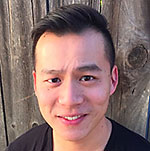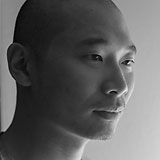
Juvenile delinquents are visiting Litchfield Federal Penitentiary, and the inmates have been enlisted to scare them into setting their lives straight.
“You think this is a joke? You want to end up here? You wouldn’t make it one night in here.”
For the most part, their fear tactics are working. The minors are confused and horror-stricken — some are ready to burst into tears. When would that school bus ever return to take them out of this terrible place?
But when all attempts fail on one particularly hard-headed delinquent, one inmate is forced to share her recent revelation of being in prison:
“I could tell you a lot of things that would scare you … but why bother? I do know that I was somebody before I came in here. I was somebody with a life that I chose for myself and now, now it’s just about getting through the day without crying. And I’m scared.
“I’m scared that I’m not myself in here and I’m scared that I am. Other people aren’t the scariest part of prison. It’s coming face-to-face with who you really are. Because once you’re behind these walls, there’s nowhere to run, even if you could run. The truth catches up with you in here.”
But unlike the cast of the dark comedy “Orange is the New Black”, we know that we don’t have to be locked up in a prison to come face-to-face with our deepest worries, insecurities, and fears — they already haunt us daily.
For me, my biggest struggles are self-worth and finding a place where I belong and am accepted. Do people see things in me that I don’t see in myself? If I didn’t see or speak to anyone, would people notice that I wasn’t there?
For you, it might be loneliness, or the strive for perfection, or whether there was even a point to this whole rat-race that we call life. You might be feeling tired. Frustrated. Unloved. Hopeless.
To top it all off, we tend to think that we’re the only ones in the world with such struggles. No one else could possibly be going through what we’re going through.
But we’re wrong.
A 2008 study in the Review of Religious Research showed that Asian American Christians report 20 to 27 percent more symptoms of depression than their White or African counterparts. In some sense, how we’re doing church today and the expectations we put on our fellow brothers and sisters are actually making life more difficult.
This issue is a starting point, a way for us to start naming the inner struggles and fears that enslave us as a community and have long been ignored in the Christian community. Self-harm, trauma, depression, self-image, and abuse are not easy topics to discuss, but we do it in the hopes of seeing healing.
If you’ve ever felt alone in these struggles, we as the staff of Inheritance see your pain and walk alongside you, sharing in many of your same fears.
We pray that you’ll be able to not only hope, but also experience a God who sees our pains, our sufferings, and our brokenness — and still loves us so much.

Daniel Chou (he) serves as the editor-in-chief of Inheritance and is also one of the magazine’s founders. He holds a Master of Divinity from Fuller Theological Seminary. Outside of Inheritance, he is co-founder of Winnow+Glean and enjoys roasting coffee. He posts sporadically on Instagram @dchou and even more sporadically on Twitter @danielchou.
